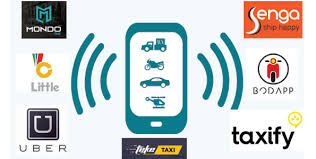By Eric Wamanji
There is a meme doing the rounds on social media of a man sitting in a battered car at a  junkyard. He seems to be in an engaging conversation with a woman who is standing outside. The cheeky caption reads: Why are women attracted to men in cars?
junkyard. He seems to be in an engaging conversation with a woman who is standing outside. The cheeky caption reads: Why are women attracted to men in cars?
This humble meme narrates deeply rooted persuasions perceptions about the desirability of men based on car ownership. Highly esteemed by men, cars have been an epitome of masculinity with phenotypic prowess that apparently bewitches women.
Many studies in marketing, psychology or sociology produce incredible insights on this phenomenon. For instance, in 2008, Hiscox, a British luxury car insurer did a research on a car’s sexual arousal. The Study lead, David Moxon, determined thus: “we can confidently conclude that the roar of a luxury car engine actually does cause primeval physiological response.”
Indeed, since they rolled off the assembly line, cars have been central in the mating and courting ritual- a transcendental element from their intrinsic mobility value. Hollywood knows this too well. Men with dark big, tough cars have it. Even a new culture of sprucing up cars with flamboyant redesign -colours, alloy rims, tinted window, and loud music – all look like a courting dance in the animal kingdom. Is it not common for girls to ask men the kind of cars they drive? And have men not dangled car keys even strategically displaying them on the tables at pubs where ladies are?
So cars are aphrodisiacs – they manifest raw machismo, muscle, money and status – all seductive potions. But, this potency is threatened by humble ride hailing apps like Uber.
It may have disrupted the taxi business, but Uber is reconfiguring and disrupting social structures, fibbers and behaviours too. It is giving more women more power and independence. It is at a super speed neutralising men and equalising gender more than any statute would have ever dreamt of. Yes, Uber seems to be on an overdrive excursion to disengage men from cars – their object of veneration.
More women are happy to hail cab than ride in a man’s car and hence the power shift. Because of technology, accessing a car for mobility has been simplified. With it goes the mystic of the alpha male changing tyres, or opening the bonnet to unravel a problem. Ride hailing is bursting the myth.
Ordinarily, urban men learning how to drive is like initiation among tribes. It’s a milestone that boosts esteem. This power to command machine constructs a new identity among peers and the opposite sex. This explains the juvenile acts of some petro-heads with turbo-charged engines, blasting exhausts and daredevilry antics to bliss and grave.
Yet, as their machines become undesirable, it will be interesting to see how men will deal with the fabled Freudian Babble as their symbol of compensation (for some) is threatened.
Previously, the man with the wheels was king. He was the hero of sorts who rescued ladies when it was raining, or during the rendezvous of club hoping. Ladies coalesced around him. At times ladies found themselves reluctantly in a man’s house because he owned a car.
Today, Uber’s ubiquity is a masterstroke game-changer. It has downplayed the symbolism of car ownership as an achievement. You see Uber is at the beck and call of women who seem to enjoy the summoning game. It gives women control and power. It is becoming the unlikely neutraliser and equaliser of gender.

The fact that Uber is unmarked seems to give users a feel of car ownership albeit vicariously. “It’s like your car; you don’t’ feel you’re in a taxi,” one woman enthused. I gather too that hailing Uber has become addictive because it stimulates the thrill centre of the brain.
One Uber driver recently mused that the twenty-somethings women seem to enjoy the taxis than any other demographic. “They take selfies in the car and keep talking saying: ‘I’m doing Uber…I’m doing Uber. ’ They’re always proud.”
For its digital technology, women feel relatively secure indulging Uber, which is also affordable and no-strings attached. Whilst riding in men’s cars is free, often times, women feel a sense of indebtedness. Such is a cost removed from the shoulders of many.
And with this post-industrial culture, fewer women, and even men, will learn how to drive. Vehicle ownership will drop too or postponed in life. Men’s attitudes and perceptions towards cars will also shift. May be the Uber concept will help achieve a gender-neutral society like the one being engineered in Belgium.
Indeed, the tribal instincts of owning a car are threatened. This will definitely tilt the balance of power in relationships and affect dating patterns. It will also affect car designs going forward. Man and woman will further be alienated. Indeed, the Uber concept will enthral psychologists and sociologists for long as the masculinity notion for the urban male shifts.
Mr Wamanji is Public Relations and Communication expert ewamanji@yahoo.co.uk @manjis
